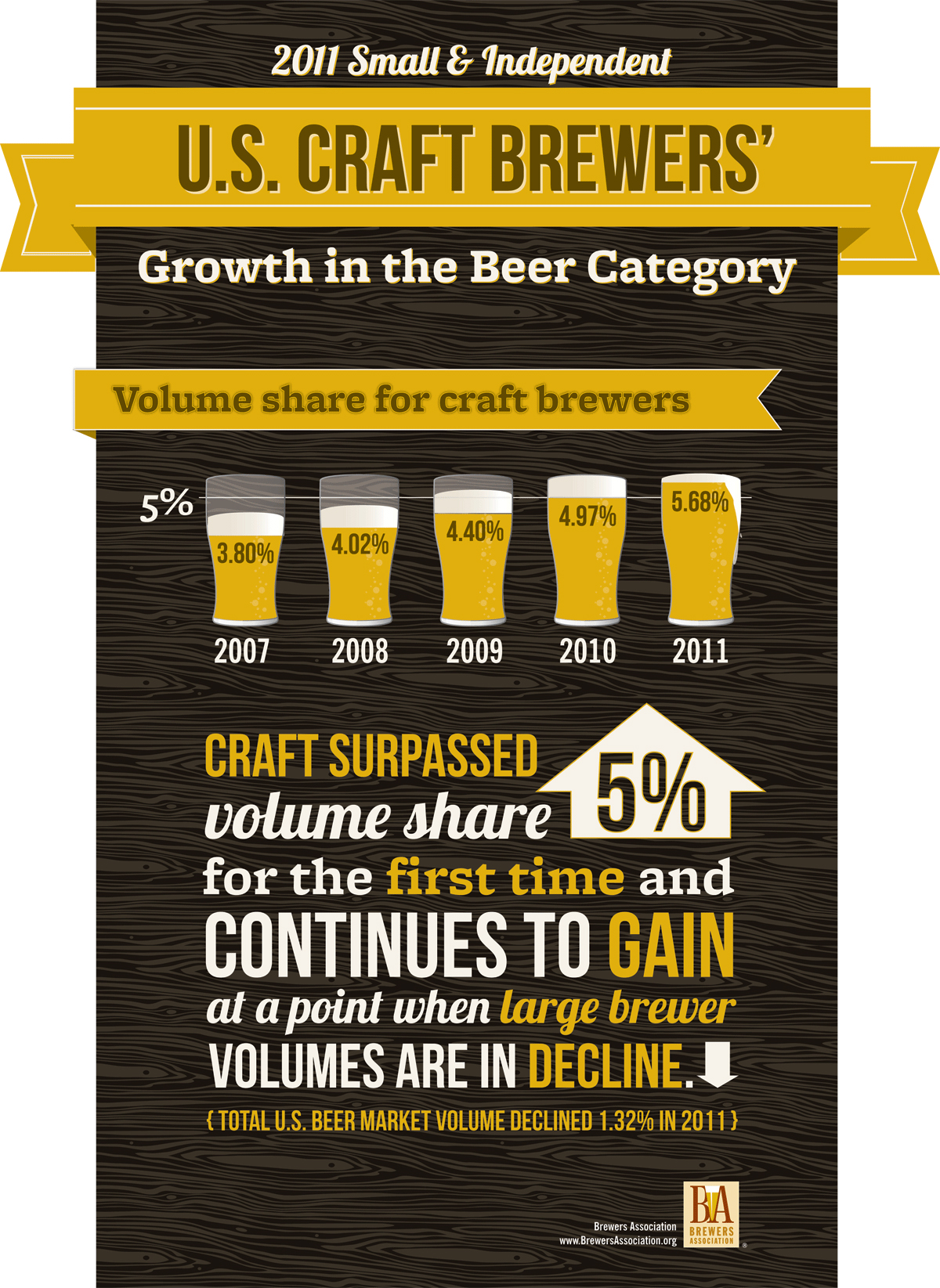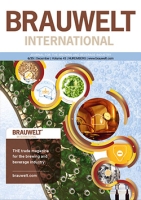Drinks companies are raising glasses to the American consumers. Their homes may be worth less than their cars and their jobs prospects dim, but when it comes to trimming the fat from their budgets, Americans would rather eat less than drink less. In fact, they continue to show an unabated interest in high-end spirits. How better to enjoy a presidential campaign that’s turned into a tit-for-tat-mudfest on the telly than with a glass of booze?
The Brewers Association (BA), the trade association representing the majority of U.S. brewing companies, has released strong mid-year numbers for America’s small and independent craft brewers this summer. Dollar sales were up 14 percent in the first half of 2012, while volume of craft brewed beer sold jumped 12 percent during that same time period.
There is a simple solution for preventing gushing: the danger potential of raw materials (malt) should be known before production. Using the analysis methods (Weihenstephaner Test, Modified Carlsberg Test) developed by MEBAK, the gushing risk is assessed on the basis of the quantity fobbed over after shaking a bottle [1]. As these gushing tests are not suitable for a rapid analysis, the R&D Department of the Weihenstephan Research Centre for Brewing and Food Quality has developed a novel analytical approach for rapid gushing prediction using combined particle analysis [6]. The latest results of this new rapid analysis for determining the gushing risk are presented.
In part 1 of this series of contributions, the central fundamentals of a tasting test based on Sommer were presented. These involve, on the one hand, that a proband always has to select one of two samples. On the other hand, if the proband cannot come to a decision, he or she has to make an educated guess. More in-depth information is given in this second part. In addition to the possibility of determining the number of tasters consciously tasting a difference, the test will also be used to establish a relationship between the degree to which the taste changed and consumer reaction.
When the going gets tough, the tough get going! So you thought. Not in Russia. When the going gets tough, the tough point fingers, place blame, and shake a fist at the government. What a sorry show brewers in Russia have put on these past few years. While beer production continued to decline, brewers knew no better than to quibble over alleged market shares; accuse each other of excessive price promotions and bemoan the fact that the government’s prohibitionist policies were taking all the fun out of doing business in this vast country. Perhaps the time has finally arrived for the tough to get going. The combination of Efes and SABMiller certainly looks like a start.
South Korea, in East Asia, is located in the southern part of the Korean Peninsula. The densely populated country has about 50 million inhabitants, about 10 million of these live in the capital Seoul. The lifestyle of the South Koreans is heavily urbanised. About 81 percent live in cities. About half the population regard themselves as not belonging to any religion, about 26 percent each are either Christian or Buddhist. South Korea has a democratic form of government [1]. This article provides an overview of the South Korean beer market and presents three selected pub breweries along with their concepts.
This series of contributions deals with the execution and evaluation of a tasting test based on Sommer [1]. The fundamentals of this test are described and explained using practically relevant examples. The system thus developed was tested and validated based on several tastings with beer and cola samples.
U.S. Craft brewers saw volume (by craft brewers represent total taxable production) rise 13 percent, with a 15 percent increase in retail sales from 2010 to 2011, representing a total barrel increase of 1.3 million.
Hops are an inherently specialized agricultural crop. The area under cultivation is extremely small compared to other crops. Yet, within this niche, there is another that has been developing in recent years and has potential for growth: organically grown hops. Cultivated without fertilizer and pesticides? Can it be done? Yes, it certainly can. BRAUWELT International visited Franz Friedrich, the largest organic hop farmer in Europe, at home in the region of Bavaria known as Little Switzerland in Franconia. We also spoke with Patrick Leavy, president of the American Organic Hop Grower Association (AOHGA).
2011 was all about beer. Newspapers, magazines, blogs. Microbreweries got tons of great press. So BRAUWELT International went to the Middle East to find out what’s really going on.



